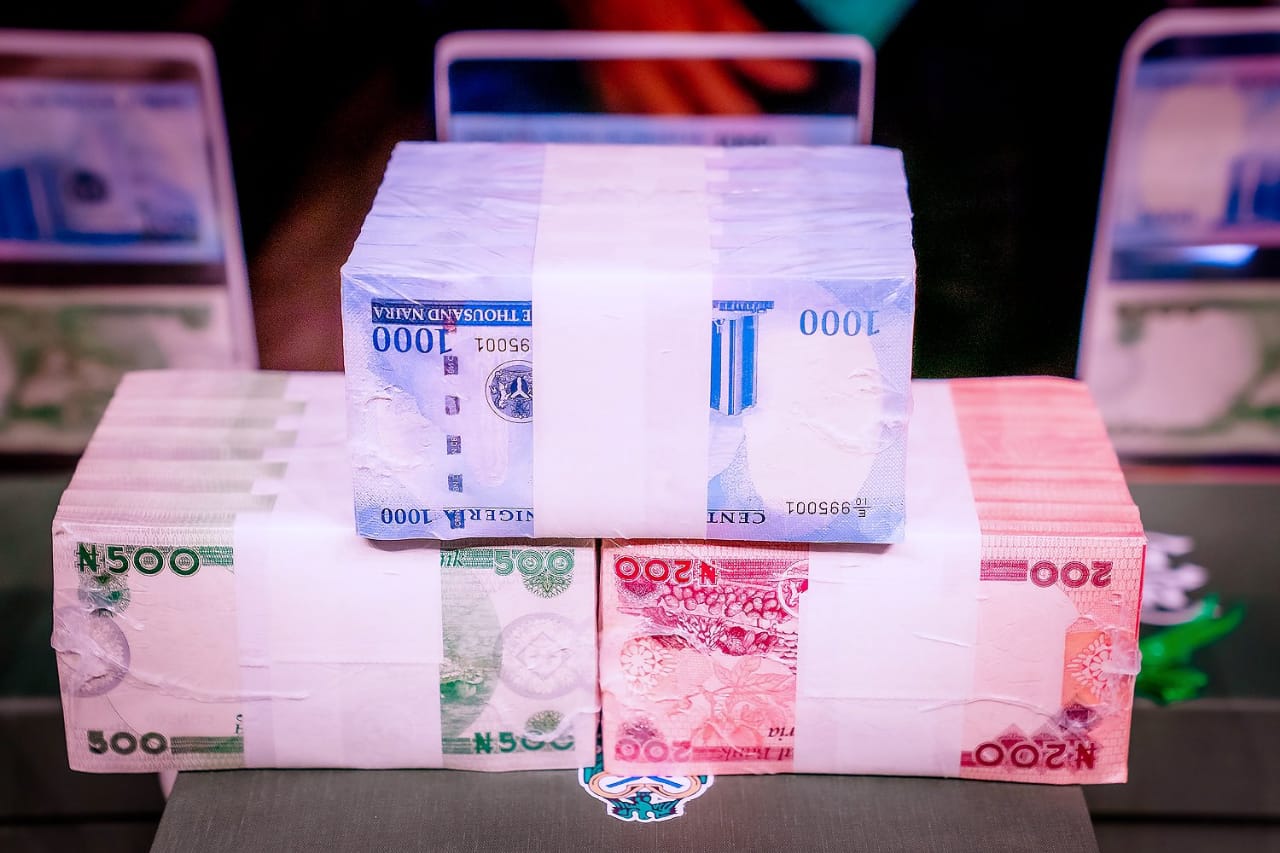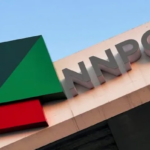By Pius Okwuanya
Tech is the buzz in Nigeria, creating its own economy and a lifestyle in our day and age where the solution to all problems seems to be technology. This thinking is not without its merits. Digital Transformation improves processes, ideas, infrastructure and even economies. At least, in political circles, widening the tax net and adding value through efficiency gains in governmental processes is possible through digitization.
The conversation about widening tax net cannot be possible without financial inclusion and financial inclusion in Nigeria is a non-starter without digital finance, also known as FinTech.
FinTech is the ‘techiest of all tech’ in Nigeria and by far the most impactful especially when measured against Edtech, E-Governance, Regtech and other dimensions of tech. Working within the ecosystem, I can state that it is an exciting space within the Nigerian context, but it has not been exciting for the past three to four years. This is not an indictment on the stakeholders, especially, the Private Sector colleagues who have the onerous task of breaking stones. It is only to point out that the products are no longer geared towards impact. Despite raising over $6bn in the past three years, the products have been ‘samey’ and unimaginative. To the effect that while financial access has been significantly deepened, financial inclusion has not, especially if we go by the research of EFINA (Enhancing Financial Innovation and Access) of the Gates Foundation. Over 40% of the country remain financially excluded despite the proliferation of FinTech companies.
Nigeria has about 24 licensed commercial banks, over 800 licensed microfinance banks, roughly about 25 licensed Super Agents, at least 10 Mobile Money operators and 3 Payments Service Banks. This figure is not exhaustive especially as there are other players within the space that leverages other licenses like the Payments Terminal Service Providers, Payments Solutions Service Providers and Finance Companies licenses to provide varying degrees of financial services within the ecosystem.
The catch is that these products are targeted towards those that are already served. The FinTechs are dragging their markets in the ‘red ocean’ instead of the ‘blue ocean’ and focus are always fixated on poaching competitors’ customers which on its own is not a bad strategy. However, it becomes a curious one when The CBN specifically states that the reason for some of their licensing categories is to drive financial inclusion and bank the unbanked. To capture this aptly, at least 75 million Nigerians are unbanked.
The furore trailing the start of the cashless policy and currency redesign can be read as a scorecard for FinTech in Nigeria. Commercial Banks were overwhelmed, FinTech apps delivered epileptic service at the crunch time and POS agents exploited porous regulation to charge usurious prices for the redesigned currencies, essentially meaning that you need naira to buy naira.
The frustrations within the banking halls has not only deteriorated to unruly behaviour and sometimes outright attacks, but has also spilled into the streets in form of protests that sometimes led to destruction of public and private properties.
It has not been all doom and gloom. Businesses that were hitherto considered out of reach for FinTech have been constrained into adoption of digital payments. Butchers, small scale retailers including Agege Bread Sellers, Transporters are all collecting payments using digital means like POS, debit cards and transfers. Payments for services that is as low as N500 are sometimes collected digitally as Nigerians begin to adapt to the fact that they have been thrown into the deep end.
Yet, it is fascinating to see that Nigerians living inside cities like Abuja and Lagos still do not have bank accounts or even the fintech accounts. The fintech boom and the drivers somehow missed the people in the most digitally advanced states and cities in Nigeria which raises concerns as to how successful we have been in the rural and peri-urban communities.
It is my view that the jury is now out on the FinTech rave in Nigeria, especially as it involves driving financial inclusion. Fintech in Nigeria had succumbed to solutioneering, pushing products and licenses without understand the problems while stating that it will drive financial inclusion.
The problems are infrastructural. Agent Network has crossed one million mark according to SANEF but are still mostly in urban areas. The reason for this is linked to other factors. The demand for agents decreases the further one is from urban areas and in some locations within Nigeria and if there is no demand, there will be no supply.
Low demand is tied to low economic activity and low economic activity may be tied to absence of other infrastructures like mobile network availability maybe linked at some level with low ownership of mobile phones., access roads and even electricity. It is a vicious cycle but it is there and it is real.
The problem is regulatory because I think that the Central Bank of Nigeria should be more positive and resolute in supervising the licensees of financial inclusion products to ensure that the rural area quotas are met as it pertains to customers and agents. Mobile Money, Super Agent and Payment Service Banks licenses have explicit financial inclusion commitment within.
Are the FinTech companies driving these numbers or is The CBN comfortable with them making superficial commitments to financial inclusion while in the real sense they are just rolling out POS in an already saturated markets where some agents already own four POS devices to service already banked customers with debit cards? You will typically struggle to find the difference between a mobile financial services platform of a ‘disruptive’ FinTech company and the Mobile Banking platform of the legacy commercial banks which ‘tech people’ have already postulated as our inefficient and unimaginative past.
Consequently, the problem is also product. Where are the innovative fintech products that address the financial exclusion realities in Nigeria? Heavy fintech apps downloadable from Appstore where your target market does not have mobile phones or own feature phones at best, do not address this. Building products and features that have already been shipped by other organizations and have failed, does not solve this. Neither do we solve the problem by ignoring historical and current data and the insights it could give.
Now that we have learnt that FinTech in Nigeria have not solved its fundamental problem, ensconced in the introduction of Mobile Money, it is time we take a second look at our Financial Services Agent Spread and the strategy behind it, the regulation and its willpower and most importantly the products and the creativity behind them thereby shunning solutioneering.
The lessons are not just negative. The way Nigerians became creative with adopting digital means of payments shows promise. FinTech has to seize the initiative this time. It is a long road, it is an uncertain, risky endeavour but that is what FinTech is.
Fintech is bold, it is adventurous and it is all about problem-solving.
2
lifestyle in our day and age where the solution to all problems seems to be technology. This thinking is not without its merits. Digital Transformation improves processes, ideas, infrastructure and even economies. At least, in political circles, widening the tax net and adding value through efficiency gains in governmental processes is possible through digitization.
The conversation about widening tax net cannot be possible without financial inclusion and financial inclusion in Nigeria is a non-starter without digital finance, also known as FinTech.
FinTech is the ‘techiest of all tech’ in Nigeria and by far the most impactful especially when measured against Edtech, E-Governance, Regtech and other dimensions of tech. Working within the ecosystem, I can state that it is an exciting space within the Nigerian context, but it has not been exciting for the past three to four years. This is not an indictment on the stakeholders, especially, the Private Sector colleagues who have the onerous task of breaking stones. It is only to point out that the products are no longer geared towards impact. Despite raising over $6bn in the past three years, the products have been ‘samey’ and unimaginative. To the effect that while financial access has been significantly deepened, financial inclusion has not, especially if we go by the research of EFINA (Enhancing Financial Innovation and Access) of the Gates Foundation. Over 40% of the country remain financially excluded despite the proliferation of FinTech companies.
Nigeria has about 24 licensed commercial banks, over 800 licensed microfinance banks, roughly about 25 licensed Super Agents, at least 10 Mobile Money operators and 3 Payments Service Banks. This figure is not exhaustive especially as there are other players within the space that leverages other licenses like the Payments Terminal Service Providers, Payments Solutions Service Providers and Finance Companies licenses to provide varying degrees of financial services within the ecosystem.
The catch is that these products are targeted towards those that are already served. The FinTechs are dragging their markets in the ‘red ocean’ instead of the ‘blue ocean’ and focus are always fixated on poaching competitors’ customers which on its own is not a bad strategy. However, it becomes a curious one when The CBN specifically states that the reason for some of their licensing categories is to drive financial inclusion and bank the unbanked. To capture this aptly, at least 75 million Nigerians are unbanked.
The furore trailing the start of the cashless policy and currency redesign can be read as a scorecard for FinTech in Nigeria. Commercial Banks were overwhelmed, FinTech apps delivered epileptic service at the crunch time and POS agents exploited porous regulation to charge usurious prices for the redesigned currencies, essentially meaning that you need naira to buy naira.
The frustrations within the banking halls has not only deteriorated to unruly behaviour and sometimes outright attacks, but has also spilled into the streets in form of protests that sometimes led to destruction of public and private properties.
It has not been all doom and gloom. Businesses that were hitherto considered out of reach for FinTech have been constrained into adoption of digital payments. Butchers, small scale retailers including Agege Bread Sellers, Transporters are all collecting payments using digital means like POS, debit cards and transfers. Payments for services that is as low as N500 are sometimes collected digitally as Nigerians begin to adapt to the fact that they have been thrown into the deep end.
Yet, it is fascinating to see that Nigerians living inside cities like Abuja and Lagos still do not have bank accounts or even the fintech accounts. The fintech boom and the drivers somehow missed the people in the most digitally advanced states and cities in Nigeria which raises concerns as to how successful we have been in the rural and peri-urban communities.
It is my view that the jury is now out on the FinTech rave in Nigeria, especially as it involves driving financial inclusion. Fintech in Nigeria had succumbed to solutioneering, pushing products and licenses without understand the problems while stating that it will drive financial inclusion.
The problems are infrastructural. Agent Network has crossed one million mark according to SANEF but are still mostly in urban areas. The reason for this is linked to other factors. The demand for agents decreases the further one is from urban areas and in some locations within Nigeria and if there is no demand, there will be no supply.
Low demand is tied to low economic activity and low economic activity may be tied to absence of other infrastructures like mobile network availability maybe linked at some level with low ownership of mobile phones., access roads and even electricity. It is a vicious cycle but it is there and it is real.
The problem is regulatory because I think that the Central Bank of Nigeria should be more positive and resolute in supervising the licensees of financial inclusion products to ensure that the rural area quotas are met as it pertains to customers and agents. Mobile Money, Super Agent and Payment Service Banks licenses have explicit financial inclusion commitment within.
Are the FinTech companies driving these numbers or is The CBN comfortable with them making superficial commitments to financial inclusion while in the real sense they are just rolling out POS in an already saturated markets where some agents already own four POS devices to service already banked customers with debit cards? You will typically struggle to find the difference between a mobile financial services platform of a ‘disruptive’ FinTech company and the Mobile Banking platform of the legacy commercial banks which ‘tech people’ have already postulated as our inefficient and unimaginative past.
Consequently, the problem is also product. Where are the innovative fintech products that address the financial exclusion realities in Nigeria? Heavy fintech apps downloadable from Appstore where your target market does not have mobile phones or own feature phones at best, do not address this. Building products and features that have already been shipped by other organizations and have failed, does not solve this. Neither do we solve the problem by ignoring historical and current data and the insights it could give.
Now that we have learnt that FinTech in Nigeria have not solved its fundamental problem, ensconced in the introduction of Mobile Money, it is time we take a second look at our Financial Services Agent Spread and the strategy behind it, the regulation and its willpower and most importantly the products and the creativity behind them thereby shunning solutioneering.
The lessons are not just negative. The way Nigerians became creative with adopting digital means of payments shows promise. FinTech has to seize the initiative this time. It is a long road, it is an uncertain, risky endeavour but that is what FinTech is.
Fintech is bold, it is adventurous and it is all about problem-solving.

 Join Daily Trust WhatsApp Community For Quick Access To News and Happenings Around You.
Join Daily Trust WhatsApp Community For Quick Access To News and Happenings Around You.



